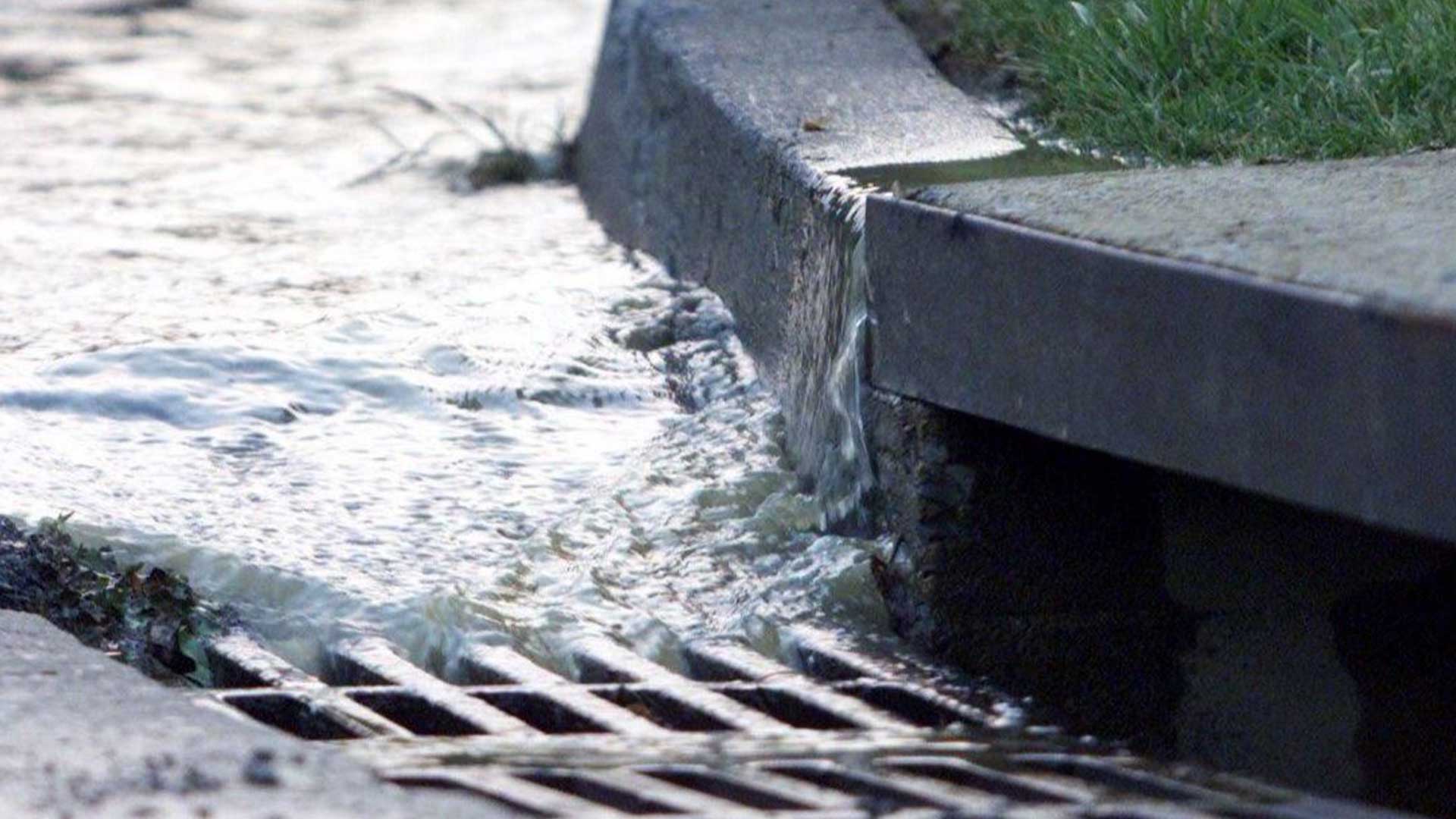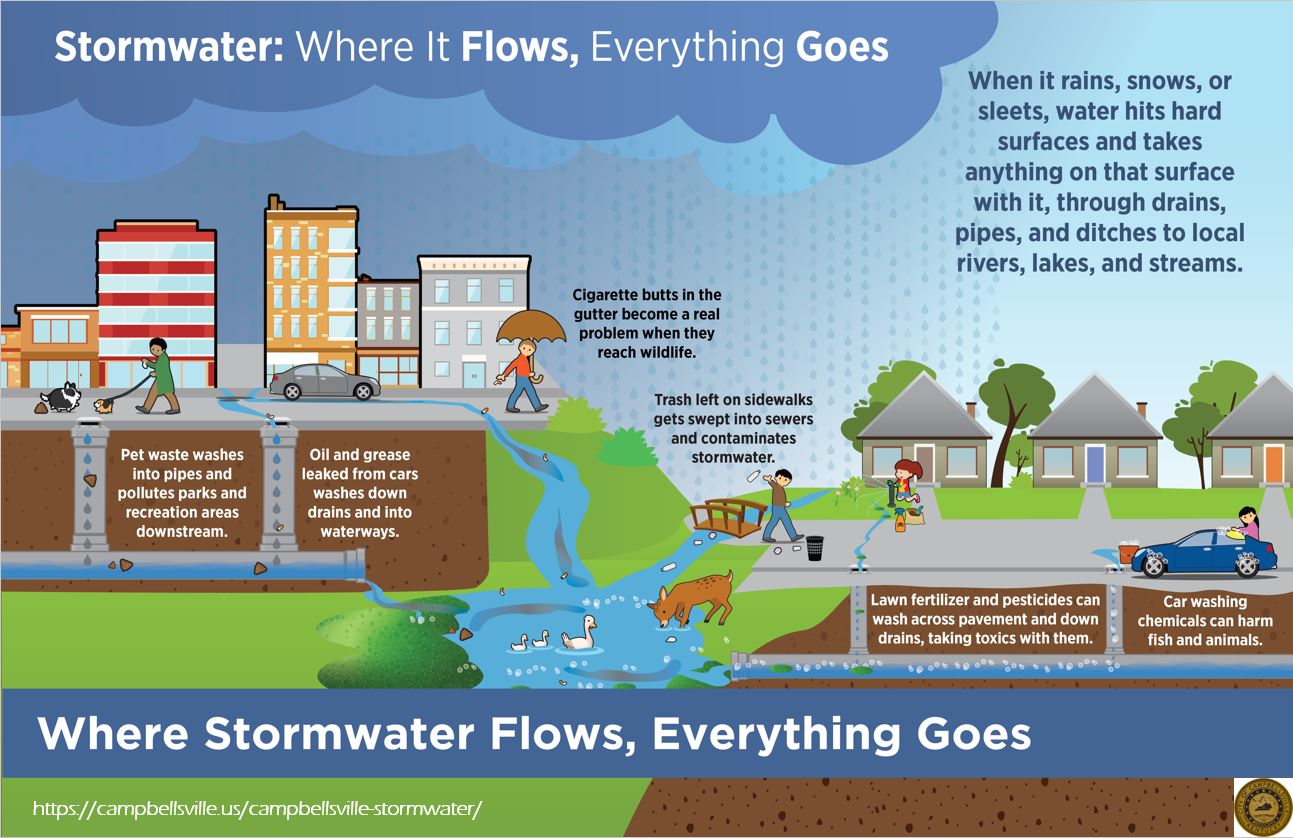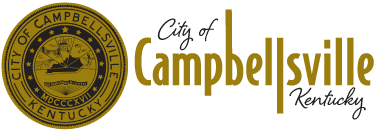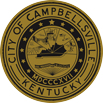CAMPBELLSVILLE STORMWATER

Public Information:
An informed and knowledgeable community is crucial to the success of our stormwater management program. Education is an effective means of improving stormwater quality because it can bring about behavior change. Our focus for the summer is on pet waste. A lot of people don’t think about cleaning up dog waste as a big deal. It only becomes a big deal when it washes into our waterways causing an impairment. Cleaning up after our pets, and disposing of it in waste containers goes a long way.

Links
More Than An Acre Construction Permit:
To download the More Than An Acre Construction Permit, click the link below:
More Than An Acre Construction Permit
Less Than An Acre Construction Permit:
To download the Less Than An Acre Construction Permit, click the link below:
Less Than An Acre Construction Permit
Storm water
According the Clean Water Act the City of Campbellsville MS4 requires you to obtain a Stormwater Permit for any ground disturbance. Please answer the following questions so we may assist you in finding the correct permit for your project.
Illicit Discharge
What Is “Illicit Discharge”?
Federal regulations define an illicit discharge as “…any discharge to an MS4 that is not composed entirely of stormwater…” with some exceptions. These exceptions include discharges from NPDES-permitted industrial sources and discharges from fire-fighting activities. Illicit discharges are considered “illicit” because MS4s are not designed to accept, process, or discharge such non-stormwater wastes.
Sources of Illicit Discharges:
- Sanitary wastewater
- Effluent from septic tanks
- Car wash wastewaters
- Improper oil disposal
- Radiator flushing disposal
- Laundry wastewaters
- Spills from roadway accidents
- Improper disposal of auto and
- Household toxins
Why Are Illicit Discharge Detection and Elimination Efforts Necessary?
Discharges from MS4s often include wastes and wastewater from non-stormwater sources. A study conducted in 1987 in Sacramento, California, found that almost one-half of the water discharged from a local MS4 was not directly attributable to precipitation runoff. A significant portion of these dry weather flows was from illicit and/or inappropriate discharges and connections to the MS4.
Illicit discharges enter the system through either direct connections (e.g., wastewater piping either mistakenly or deliberately connected to the storm drains) or indirect connections (e.g., infiltration into the MS4 from cracked sanitary systems, spills collected by drain outlets, or paint or used oil dumped directly into a drain). The result is untreated discharges that contribute high levels of pollutants, including heavy metals, toxins, oil and grease, solvents, nutrients, viruses, and bacteria to receiving water bodies. Pollutant levels from these illicit discharges have been shown in EPA studies to be high enough to significantly degrade receiving water quality and threaten aquatic, wildlife, and human health.
Not all non-storm water discharges are considered illicit discharges, Examples of exempt discharges include:
- Water line flushing
- Landscape irrigation
- Diverted stream flows
- Rising ground waters
- Uncontaminated ground water infiltration
- Uncontaminated pumped ground water
- Discharges from potable water sources
- Foundation drains
- Air conditioning condensation
- Irrigation water
- Springs
- Water from crawl space pumps
- Footing drains
- Lawn watering
- Individual residential car washing
- Flows from riparian habitats and wetlands
- De-chlorinated swimming pool discharges
- Street wash water
Contact Information
Bobby Sexton, Supervisor
bobby.sexton@campbellsville.us
Address: 100 Terri Street
Campbellsville, KY 42718
Phone: 270-465-7011
Fax: 270-789-0251


